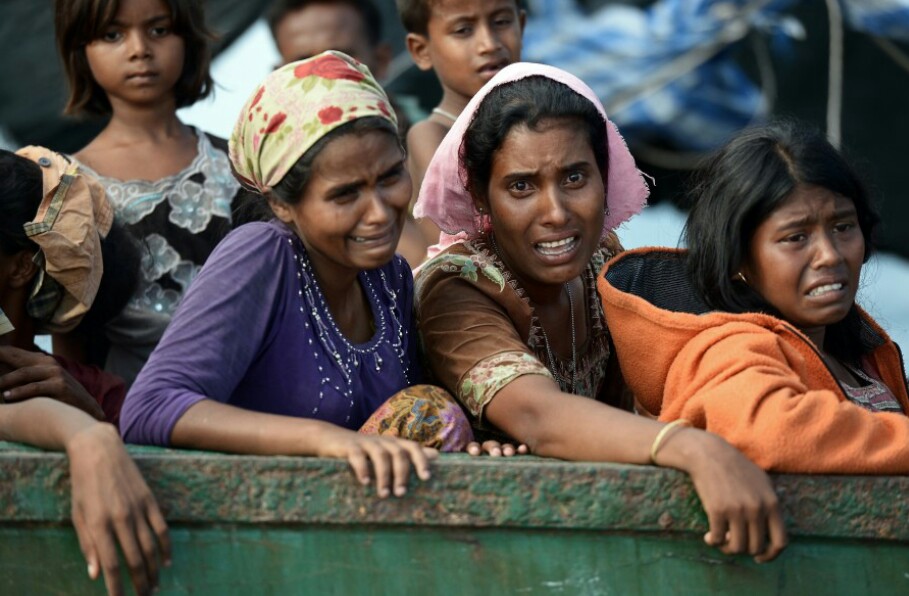UNHRC Slams India on Rohingya, Gauri Lankesh, Cow Lynchings
THE CITIZEN BUREAU

NEW DELHI: India came in for hard criticism by the United Nations High Commission for Human Rights Zeid Ra’ad Al Hussein who spoke of Myanmar’s decision to landmine the Rakhine borders and ‘deplored’ “current measures in India to deport Rohingyas at a time of such violence against them in their country.”
He said that despite the claims of Minister of State for Home Affairs, India cannot expel the 40,000 Rohingyas that have settled in India, and 16,000 of them have received refugee documentation. Hussein pointed out that, “by virtue of customary law, its ratification of the International Covenant on Civil and Political Rights, the obligations of due process and the universal principle of non-refoulement, India cannot carry out collective expulsions, or return people to a place where they risk torture or other serious violations.”
Hussein said that both India and Pakistan were reluctant to engage with UNHRC on rights issues. And that “this includes their failure to grant access to Kashmir on both sides of the Line of Control to verify the worrying developments that continue to be reported there.” He said that his office was monitoring the human rights situation in Kashmir independently on both sides of the Line of Control and would be bringing out a report soon.
Hussein said he was dismayed by the rise of intolerance against religious and other minorities in Indi. broader rise of intolerance towards religious and other minorities in India. He spoke of the “current wave of violent, and often lethal, mob attacks against people under the pretext of protecting the lives of cows” as “ alarming” .
He said that people speaking out for fundamental rights are threatened and referred to the assassination of Gauri Lankesh “ a journalist who tirelessly addressed the corrosive effect of sectarianism and hatred”. Hussein said he was “heartened” by the protests and demonstrations in 12 cities was assassinated last week. I have been heartened by the subsequent marches calling for protection of the right to freedom of expression, and by demonstrations in 12 cities. He spoke of the Narmada Bachao andolan, and regretted that those who were trying to build a stronger and more inclusive society were being subjected to “harassment and even criminal proceedings, or denied protection by the State.”
This is what the UN Human Rights Commissioner said about India:
“I deplore current measures in India to deport Rohingyas at a time of such violence against them in their country. Some 40,000 Rohingyas have settled in India, and 16,000 of them have received refugee documentation. The Minister of State for Home Affairs has reportedly said that because India is not a signatory to the Refugee Convention the country can dispense with international law on the matter, together with basic human compassion. However, by virtue of customary law, its ratification of the International Covenant on Civil and Political Rights, the obligations of due process and the universal principle of non-refoulement, India cannot carry out collective expulsions, or return people to a place where they risk torture or other serious violations.
I am also dismayed by a broader rise of intolerance towards religious and other minorities in India. The current wave of violent, and often lethal, mob attacks against people under the pretext of protecting the lives of cows is alarming. People who speak out for fundamental human rights are also threatened. Gauri Lankesh, a journalist who tirelessly addressed the corrosive effect of sectarianism and hatred, was assassinated last week. I have been heartened by the subsequent marches calling for protection of the right to freedom of expression, and by demonstrations in 12 cities to protest the lynchings. Human rights defenders who work for the rights of India's most vulnerable groups – including those threatened with displacement by infrastructure projects such as the Sardar Sarovar Dam in the Narmada river valley – should be considered allies in building on India's achievements to create a stronger and more inclusive society. Instead, many are subject to harassment and even criminal proceedings, or denied protection by the State.
In Pakistan, the authorities often encourage intolerance for minorities or minority views, with sometimes deadly consequences. Many journalists and human rights defenders face daily threats of violence. Even allegations of blasphemy, or suggestions that blasphemy laws require revision to comply with the right to freedom of thought and religion can lead to vigilante violence. In addition, the Government has used vague and excessive legislation on the digital space, and regulations regarding NGO activities, to limit critical voices and shrink the democratic space. Violence against women remains extremely widespread, including forced marriage, acid attacks and forced and child marriage.
I regret the reluctance of both India and Pakistan to engage with my Office on the human rights concerns I have raised in recent months. This includes their failure to grant access to Kashmir on both sides of the Line of Control to verify the worrying developments that continue to be reported there. In the absence of such access, my Office is undertaking remote monitoring of the human rights situation in Kashmir on both sides of the Line of Control, with a view to making the findings public in the near future.



